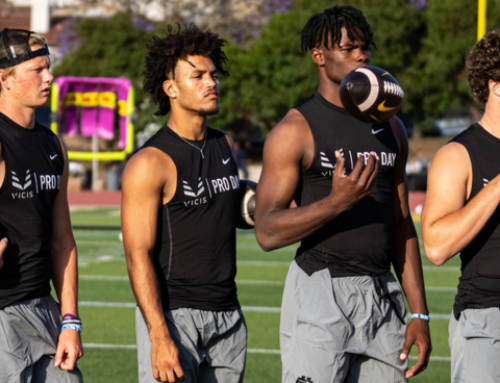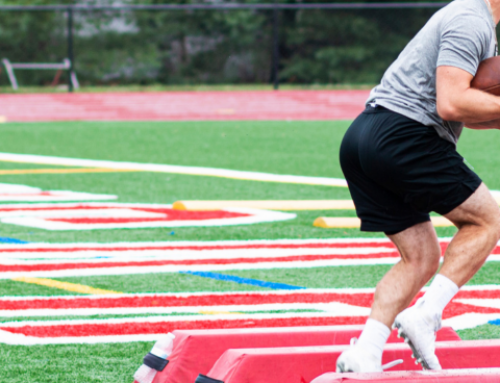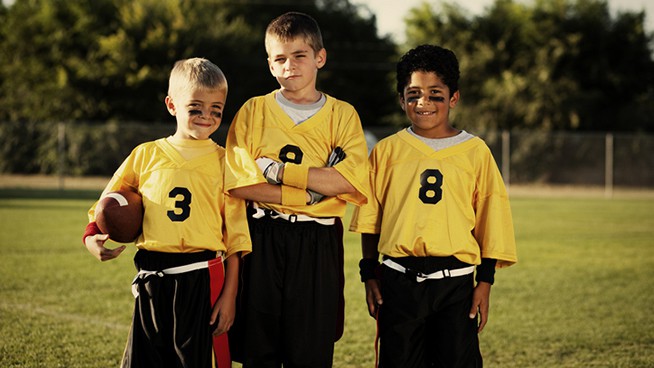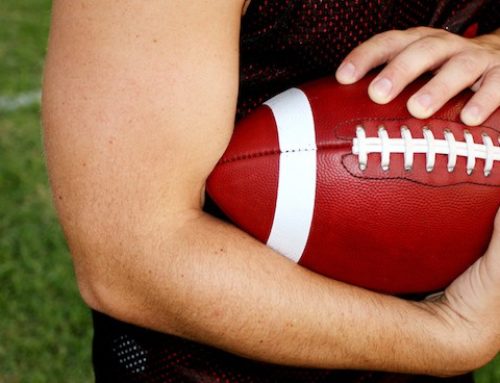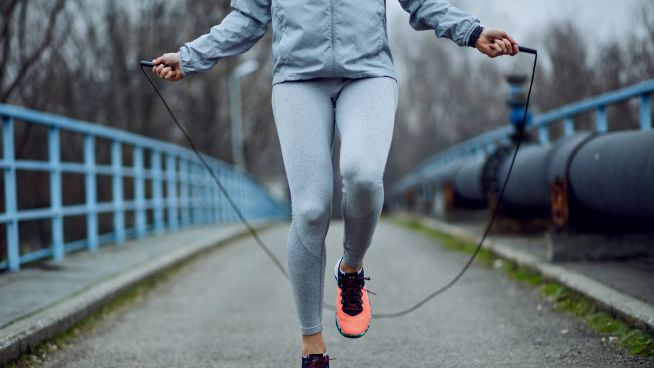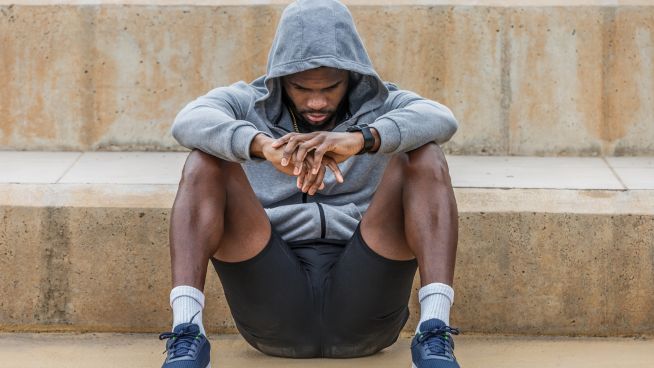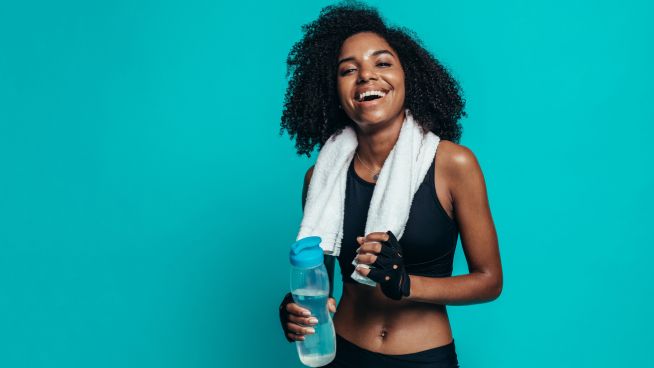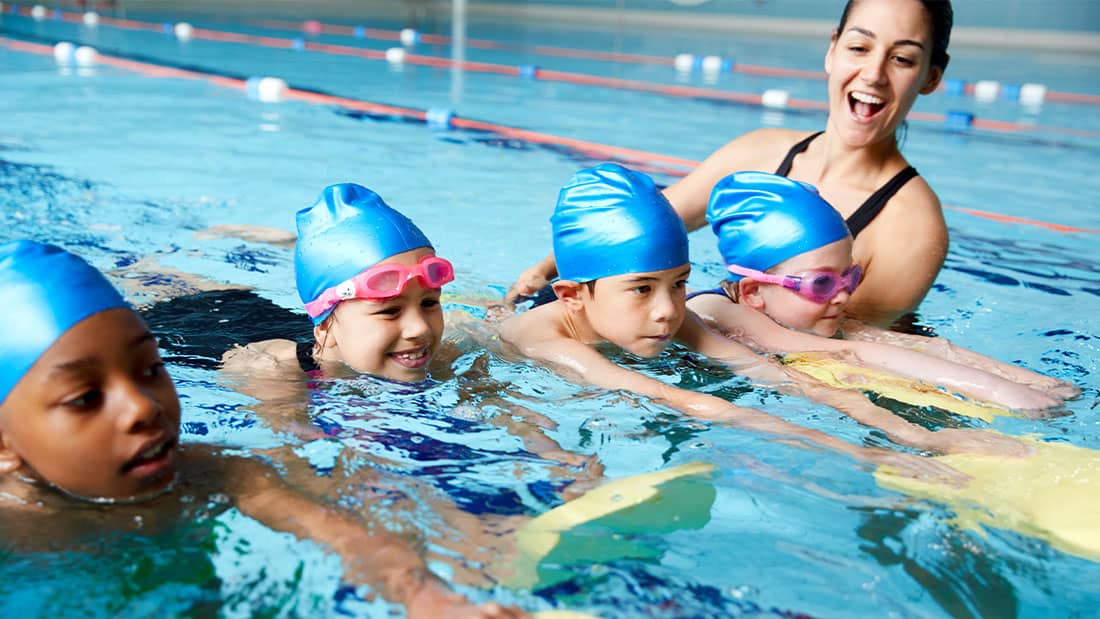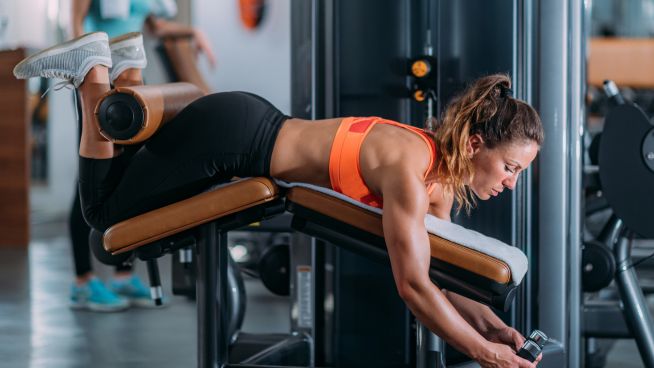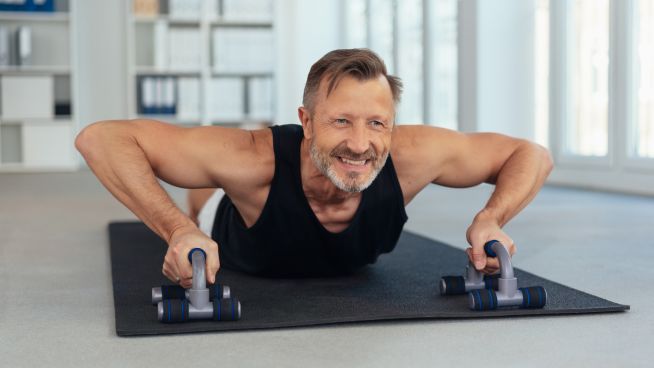A recent study found that failing to drink enough fluids during a game actually makes you slower.
It’s long been known that dehydration can ruin your endurance. Premature fatigue and cramping from dehydration can be so severe that endurance athletes sometimes cannot even finish their events. That’s a worst case scenario. More commonly, if they don’t take in enough fluid, they simply slow down.
However, when it comes to sprint-based sports, like football, researchers have only been able to surmise that dehydration slows you down. Previous research has shown that when you are dehydrated, your sprint speed might decrease, stay the same or even increase.
The latest study on the topic, published in the Journal of Strength & Conditioning Research, sought to shed more light on how dehydration affects repeat sprint performance. The researchers designed the study to simulate a common practice schedule, an athlete having an afternoon practice and either hydrating or failing to hydrate before a practice the next morning.
RELATED: Other Ways Hydration Affects Your Performance
Eight NCAA Division II basketball players performed two identical sprint tests consisting of three sets of eight 30-meter sprints with 45 seconds of rest between sets. One test was performed while hydrated and the other was performed at 3-percent dehydration.
The researchers found no difference in the two tests in the first set of sprints. However, the dehydration results were on average 3.3 percent slower in the second and third sets. There was a wide gap in individual performance. One athlete actually sprinted 0.8 percent faster in the dehydration test and another sprinted 5.5 percent slower.
Based on these results, the researchers concluded that dehydration of 1 to 3 percent will likely slow down your intermittent sprint speed. They also found that dehydrated athletes experience an elevated heart rate and perceive the sprints as more difficult.
Some athletes might be able to handle dehydration better than others, but staying hydrated should be a primary focus for athletes looking to maintain their sprint speed.
A 3 percent reduction in speed might not seem like much, but athletes train for even the smallest gains. For example, Marcus Mariota ran 21.42 miles per hour in Week 1 of the 2015 NFL season. If he had been dehydrated, he would’ve only reached 20.71 miles per hour.
The key is to take a comprehensive approach with your hydration. According to Leslie Bonci, renowned sports dietitian, this involves more than just drinking a little fluid before you practice or play in a game. Here are Bonci’s guidelines for optimal hydration:
- Drink fluid throughout the entire day. Male athletes should have about 15 cups of water, and female athletes should drink 9-11 cups of water.
-
Drink 20 ounces of water 1 hour before activity.
-
Drink regularly throughout your activity, taking big gulps of water.
-
Drink 24 ounces of water after activity for every pound of weight lost.
RELATED: What Fluids Are Best for Hydration?
RECOMMENDED FOR YOU
MOST POPULAR
A recent study found that failing to drink enough fluids during a game actually makes you slower.
It’s long been known that dehydration can ruin your endurance. Premature fatigue and cramping from dehydration can be so severe that endurance athletes sometimes cannot even finish their events. That’s a worst case scenario. More commonly, if they don’t take in enough fluid, they simply slow down.
However, when it comes to sprint-based sports, like football, researchers have only been able to surmise that dehydration slows you down. Previous research has shown that when you are dehydrated, your sprint speed might decrease, stay the same or even increase.
The latest study on the topic, published in the Journal of Strength & Conditioning Research, sought to shed more light on how dehydration affects repeat sprint performance. The researchers designed the study to simulate a common practice schedule, an athlete having an afternoon practice and either hydrating or failing to hydrate before a practice the next morning.
RELATED: Other Ways Hydration Affects Your Performance
Eight NCAA Division II basketball players performed two identical sprint tests consisting of three sets of eight 30-meter sprints with 45 seconds of rest between sets. One test was performed while hydrated and the other was performed at 3-percent dehydration.
The researchers found no difference in the two tests in the first set of sprints. However, the dehydration results were on average 3.3 percent slower in the second and third sets. There was a wide gap in individual performance. One athlete actually sprinted 0.8 percent faster in the dehydration test and another sprinted 5.5 percent slower.
Based on these results, the researchers concluded that dehydration of 1 to 3 percent will likely slow down your intermittent sprint speed. They also found that dehydrated athletes experience an elevated heart rate and perceive the sprints as more difficult.
Some athletes might be able to handle dehydration better than others, but staying hydrated should be a primary focus for athletes looking to maintain their sprint speed.
A 3 percent reduction in speed might not seem like much, but athletes train for even the smallest gains. For example, Marcus Mariota ran 21.42 miles per hour in Week 1 of the 2015 NFL season. If he had been dehydrated, he would’ve only reached 20.71 miles per hour.
The key is to take a comprehensive approach with your hydration. According to Leslie Bonci, renowned sports dietitian, this involves more than just drinking a little fluid before you practice or play in a game. Here are Bonci’s guidelines for optimal hydration:
- Drink fluid throughout the entire day. Male athletes should have about 15 cups of water, and female athletes should drink 9-11 cups of water.
-
Drink 20 ounces of water 1 hour before activity.
-
Drink regularly throughout your activity, taking big gulps of water.
-
Drink 24 ounces of water after activity for every pound of weight lost.
RELATED: What Fluids Are Best for Hydration?


